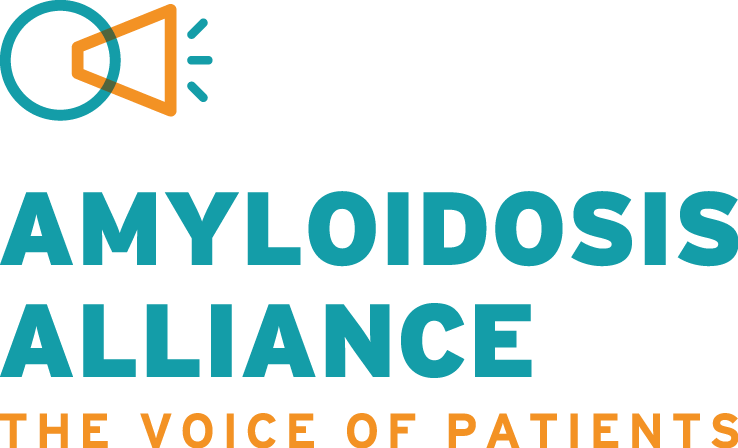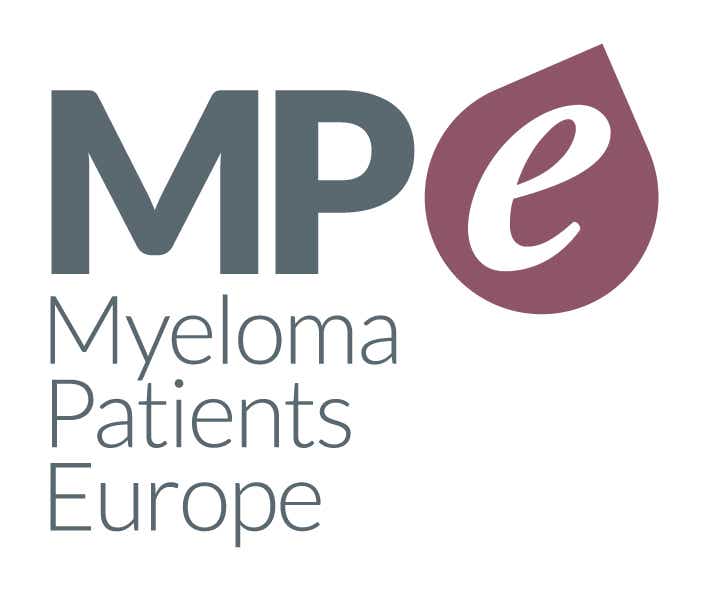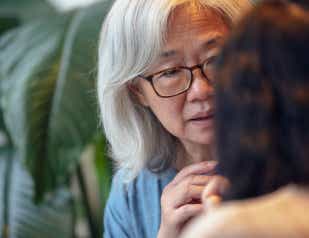AL Amyloidosis
Support and Caregivers
Patient advocacy groups
For many people ‘a problem shared is a problem halved’. Connecting with others can help you understand your feelings better, and point you in the direction of practical advice. You could consider joining a support group to talk about your experiences with people in the same situation – learning and sharing as you go.
Patient support groups and AL amyloidosis advocate groups
This website was created with input from AL amyloidosis patients and advocates but is developed exclusively by Janssen Pharmaceutica NV. Please note that the patient advocacy groups listed below are an additional and independent sources of information you might find useful.

Amyloidosis Alliance
The Amyloidosis Alliance makes significant contributions about the quality of cure and care of amyloidosis patients by exchange of experiences and constructive interaction with other players at an international level.
The missions of the amyloidosis Alliance are the following:
- Communication and mutual support between patient organisations
Awareness
Diagnosis
Treatment and care
Research
Advocacy at international level
Support other countries in initiating patient organisations
The members’ patient organisations’ missions are to inform, listen & help patients with any type of amyloidosis, leverage awareness and recognise the disease. https://www.amyloidosisalliance.org/

Myeloma Patients Europe
- While not specific to AL amyloidosis, Myeloma Patients Europe works with amyloidosis patient organisations and has valuable information on their website including factsheets with answers to common questions, videos, and other resources. https://www.mpeurope.org/about-al-amyloidosis/
MPE published an AL Amyloidosis Guide for patients covering the disease, treatment, living with AL amyloidosis, and more.
- MPE can help you find a local patient organisation or support groups in your country.
Caring for those with AL amyloidosis
Caring for someone with AL amyloidosis can be complex and demanding – both physically and emotionally. A carer is anyone who provides help for someone else who is unable to manage without this support. This may be a friend, family member, or even a neighbour. Most often, it is a partner or spouse.
Moving from being part of an equal partnership to a relationship in which one depends on the other for care and support can sometimes be challenging. Carers are not trained to help patients, which makes them different from professionals like nurses or care workers.
Recognising your role and the responsibilities you are taking on as a carer is essential. It is the first step you need to take to ensure you get the help you might need now or later.
It is also important to recognise that you might need help for yourself in this new role. The first step is usually to talk to your doctor. Remember that your health must be a priority too. Many support groups will also offer practical advice for carers, no matter what stage of the disease journey the person who you are caring for is at.
They should also be able to help you identify ways of getting support, whether practical or financial, including local carers’ services and social care support.
Caring for someone can range from being a sympathetic ear, to providing more hands-on assistance, like driving to and from hospital appointments or helping them with daily activities like getting dressed, shopping or doing tasks around the home. It will look different from person to person, but here are some ways you can help to care for the person in your life with AL amyloidosis:

